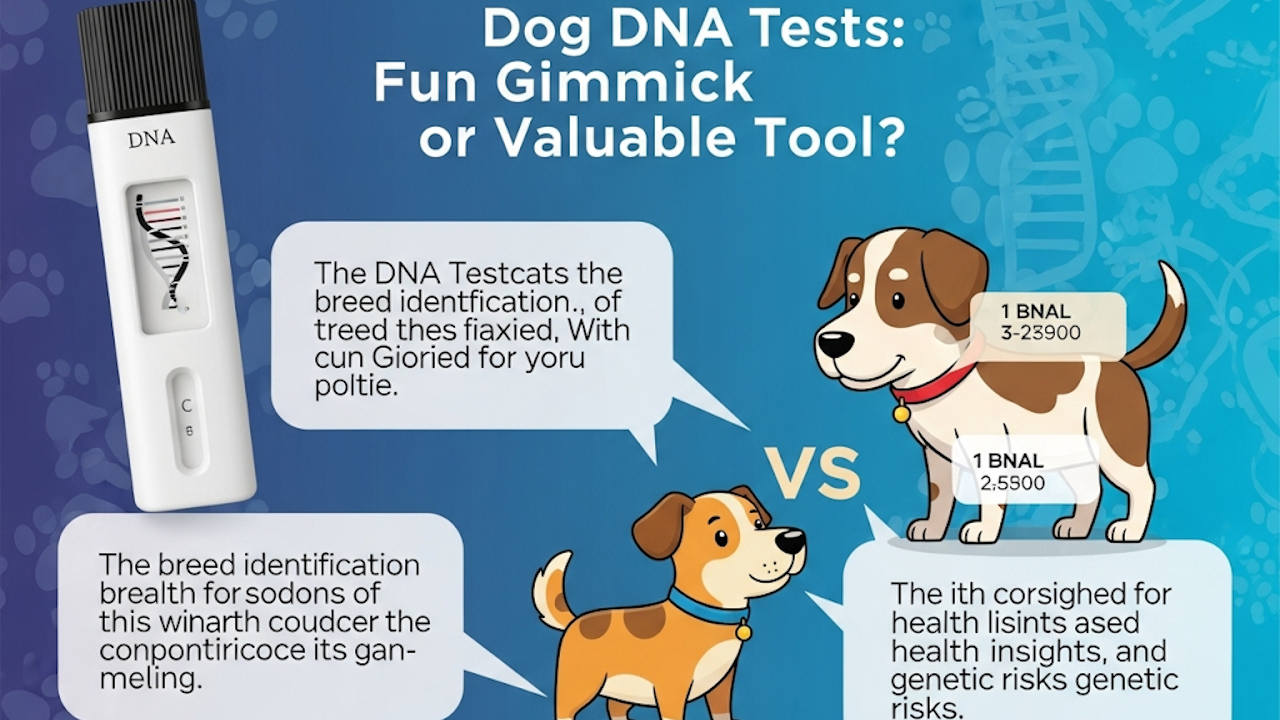In recent years, the market for dog DNA tests has exploded, with numerous companies offering insights into a canine companion’s breed makeup, genetic predispositions to disease, and even personality traits. But are these tests just a fun gimmick, a way to indulge our curiosity about our furry friends, or do they offer genuine, valuable tools for dog owners and breeders? This article will delve into the science behind dog DNA testing, explore its practical applications, and weigh its benefits against its limitations to answer this pressing question.
The Science Behind the Swab
At its core, dog DNA testing relies on analyzing a dog’s unique genetic code, typically obtained from a simple cheek swab. This DNA contains a wealth of information, encoded in sequences of nucleotides. Scientists compare these sequences to vast databases of canine genetic markers associated with specific breeds, traits, and diseases.
For breed identification, tests look for specific Single Nucleotide Polymorphisms (SNPs) – variations at a single position in the DNA sequence – that are characteristic of particular breeds. By analyzing thousands of these SNPs, algorithms can piece together a dog’s ancestral puzzle, often tracing back several generations.
Disease screening works similarly, identifying genetic mutations known to cause or increase the risk of certain health conditions. These can range from common issues like hip dysplasia and certain cancers to more rare, breed-specific disorders. Trait analysis might involve identifying genes linked to coat color, hair type, or even potential aptitude for certain activities.
Beyond the Breed Reveal: Practical Applications
While the “breed reveal” is undoubtedly a major draw, the true value of dog DNA tests extends far beyond satisfying curiosity.
1. Tailored Care and Training: Understanding a dog’s breed mix can provide invaluable insights into their inherent needs and tendencies. For example, a dog with a significant percentage of working breeds might require more exercise and mental stimulation than one primarily composed of companion breeds. Knowing a dog’s breed heritage can also help owners anticipate certain behavioral traits, like a terrier’s digging instincts or a herding dog’s desire to control movement, allowing for more effective training strategies.
2. Proactive Health Management: This is arguably where DNA tests offer the most significant value. Identifying genetic predispositions to certain diseases allows owners and veterinarians to be proactive. If a dog is found to be a carrier or at high risk for a particular condition, a preventative care plan can be implemented, including specialized diets, regular screenings, or early interventions. This can lead to earlier diagnosis, better management, and ultimately, a higher quality of life for the dog. For breeders, this information is critical in making responsible breeding decisions, helping to reduce the incidence of genetic diseases in future generations.
3. Understanding Unique Traits: Beyond health, some tests offer insights into physical traits like coat type (curly, straight, wirehaired), shedding levels, and even eye color. While often less critical than health information, this can still be interesting for owners and can help explain certain aspects of their dog’s appearance or grooming needs. Some tests also attempt to link genetic markers to behavioral tendencies, though this area is still under extensive research and should be interpreted with caution.
4. Rescue and Shelter Benefits: For mixed-breed dogs in shelters, DNA tests can provide crucial information to potential adopters. Knowing a dog’s likely size, energy level, and potential health concerns can help match them with a suitable home, reducing the chances of returns. It can also assist shelters in providing appropriate care and enrichment during a dog’s stay.
Limitations and Considerations
Despite their numerous benefits, dog DNA tests are not without their limitations.
1. Accuracy and Database Size: The accuracy of breed identification and disease screening largely depends on the size and diversity of the company’s reference database. Companies with more extensive databases, encompassing a wider range of breeds and genetic markers, will generally provide more accurate results. It’s important to choose reputable companies with a strong scientific backing. Some less established companies may offer less precise or even misleading information.
2. Incomplete Disease Panels: While many tests screen for a range of genetic diseases, they do not cover every possible condition. A clear result for a screened disease does not guarantee a dog will never develop that condition, nor does it rule out other, unscreened genetic problems or environmentally-influenced illnesses.
3. Interpreting Behavioral Traits: The link between specific genes and complex behavioral traits is still an evolving field of study. While some genes may influence certain predispositions, behavior is also heavily shaped by environment, training, and individual experiences. Owners should be wary of relying solely on DNA results to explain or predict a dog’s temperament.
4. Ethical Considerations for Breeders: While a valuable tool, DNA testing can also present ethical dilemmas for breeders. The decision to remove a dog from a breeding program based on carrier status for a disease, even if the dog itself is healthy, is complex and requires careful consideration of genetic diversity within the breed.
Conclusion: Valuable Tool with a Dash of Fun
Ultimately, dog DNA tests are far more than just a fun gimmick. When used responsibly and interpreted with an understanding of their limitations, they are a genuinely valuable tool for dog owners, veterinarians, and breeders. They empower owners with knowledge to provide more tailored care, enable proactive health management, and contribute to responsible breeding practices that can improve the health and well-being of future canine generations.
While the excitement of uncovering a dog’s breed mix is undeniably entertaining, the true power of these tests lies in their ability to provide actionable insights that can lead to healthier, happier lives for our beloved canine companions. As the science continues to advance and databases grow, the utility of dog DNA tests will only continue to expand, solidifying their place as an indispensable resource in modern pet care.

